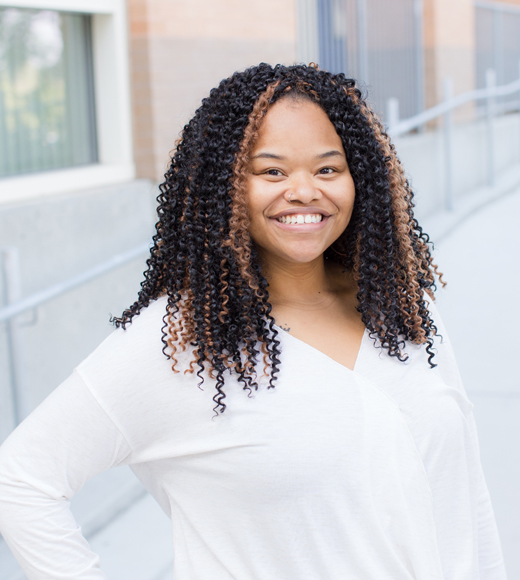Student Profile: LaBreonna Stori-Turner Bland

Email address: lbland@uci.edu
Dual degree you are pursuing: J.D., Ph.D. in Criminology, Law and Society
Expected graduation: Spring 2023, J.D.; Spring 2022, Ph.D.
Research interests/agenda: collateral consequences of punishment/criminalization, evaluation, social policy, race and inequality, law and society
Past Education:
- Wayne State University - MS Criminal Justice, 2016
- University of Michigan – BS Psychology, 2013
- Ferris State University – BS Health Care Administration, 2011; AAS Legal Studies. 2011
Academic Experiences, Awards and Honors:
- Social Ecology DTEI Fellow, 2020
- Dickman’s Dissertation Research Award, 2019-2020
- Womxn’s Hub Dyanmic Scholar Award 2019-2020
- Arnie Binder Award, 2018-2019
- Social Ecology Graduate Student Mentor 2018-2019
- Peer Mentor of the Year, 2017-2018
- ACJS Doctoral Fellow, 2018
- Beyond the Bars L.A. Fellow, 2017-2018
Presentations, Publications, Speaking Engagements:
- Bland L. (2019). Civilian Oversight and the Legacy of the Ghetto Bird: Negotiation of Culture, Safety, and Space in L.A. County. Law and Society Association, Washington, D.C.
- Bland, L., Echols, C. (2018). The Perceptions of Police Use of Drones Among Black Los Angeles Residents. Western Society of Criminology, Long Beach, California
- Bland, L. (2017). Who Controls the Cops? American Society of Criminology, Philadelphia, Pennsylvania
- Rubino, L., Bland, L. (2016). Collective efficacy and police procedural justice in urban neighborhoods. Academy of Criminal Justice Sciences, Denver, Colorado
- Bland, L., Rubino, L., Boehler, M. (2015). Neighborhood informal social control and police procedural justice: Perceptions of police affect their likelihood of intervening in neighborhood disorder. Midwestern Criminal Justice Association, Chicago, Illinois
What made you interested in pursuing dual degrees? My research interests have led to examining the localized impact of mass incarceration, how community members disrupt problematic policy, and how criminal legal contact exacerbates social inequality. Within my work, primacy has been given to how communities have responded to laws or policy. My interest in how law may create, reproduce, or exacerbate inequalities is as great as my hope to work both from and through law to ameliorate these inequalities. The opportunity to concurrently obtain a JD/PhD offers me a chance to realize my enduring commitment to interrogating and addressing social problems from a multidimensional perspective. This commitment has become increasingly important, both as a global citizen and as Black woman.
